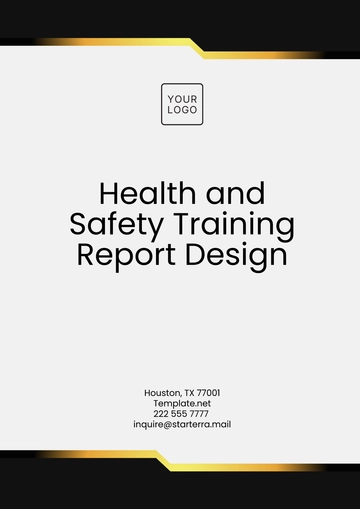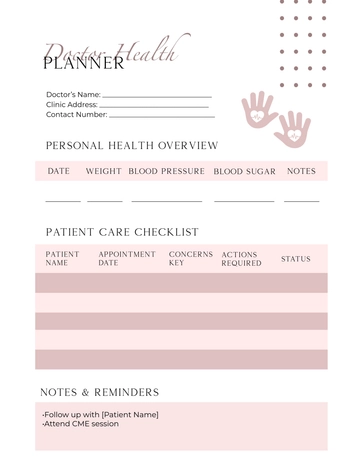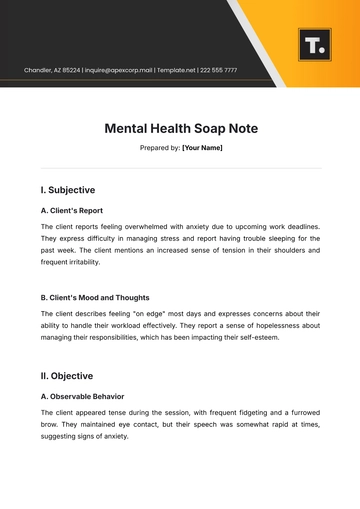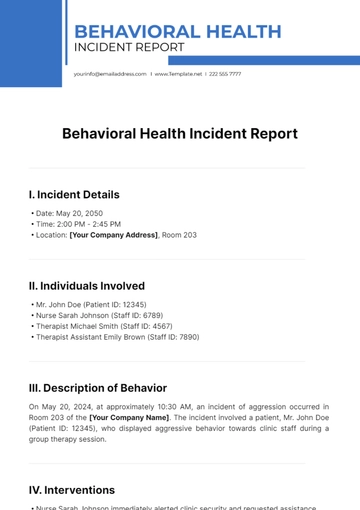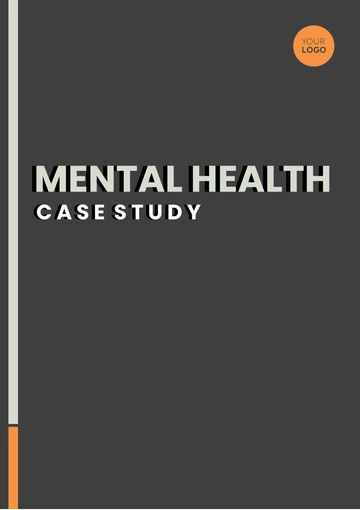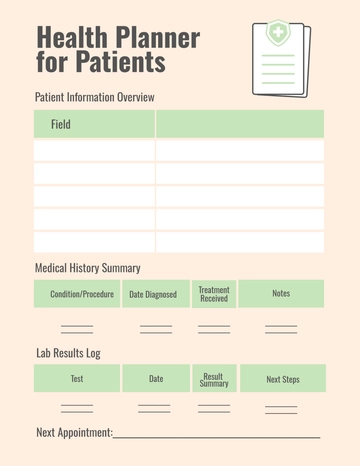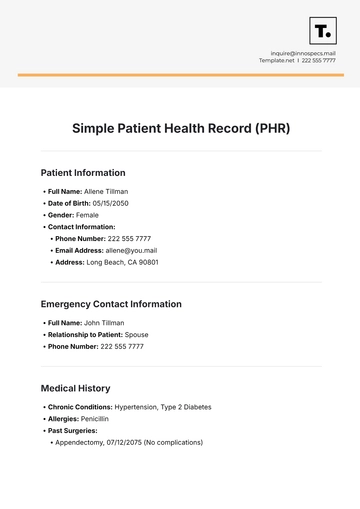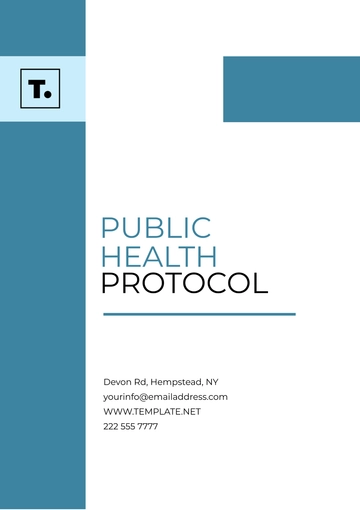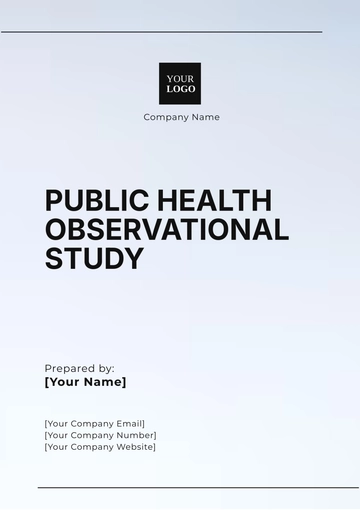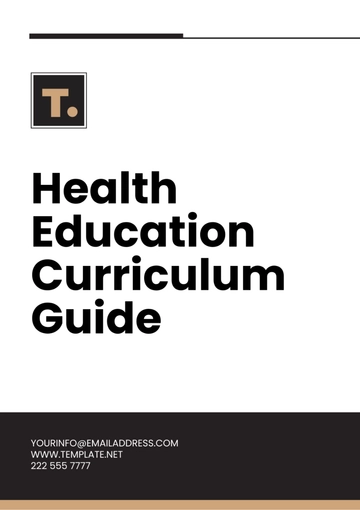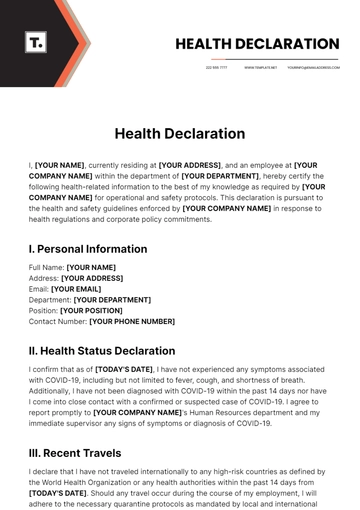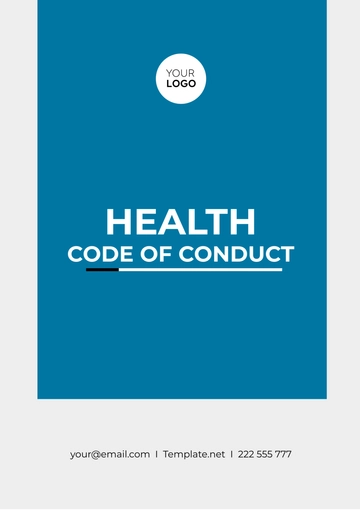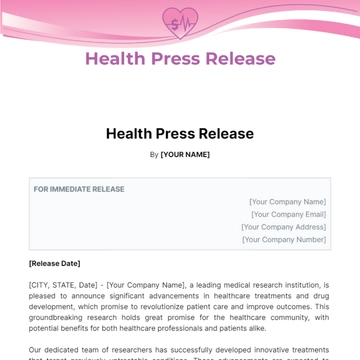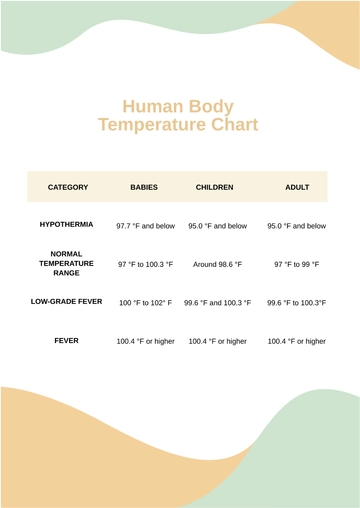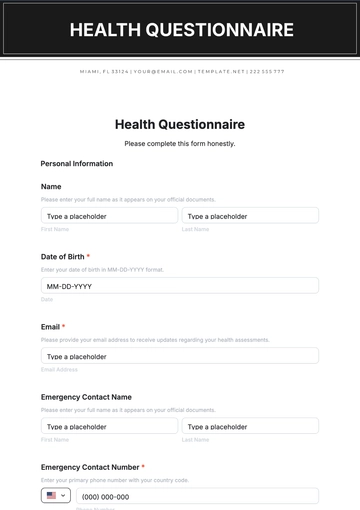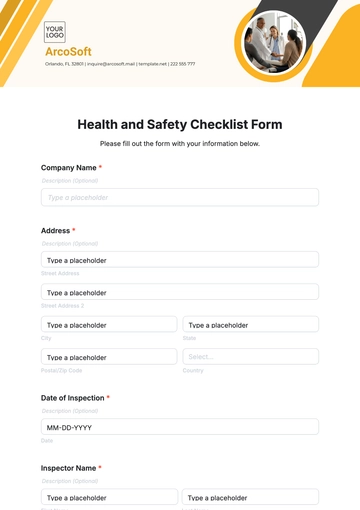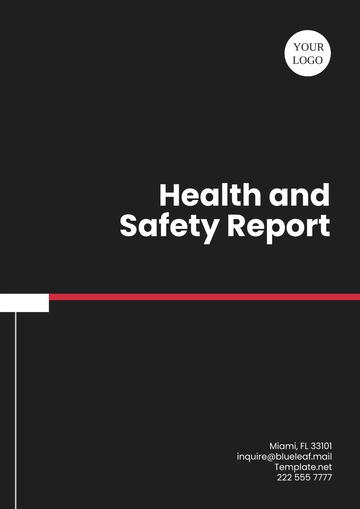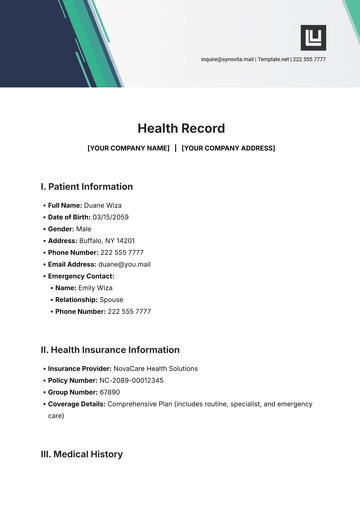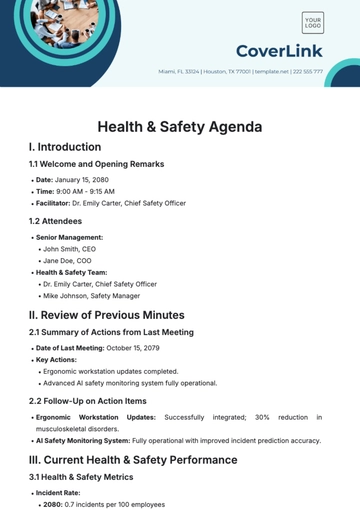Free Disease Summary
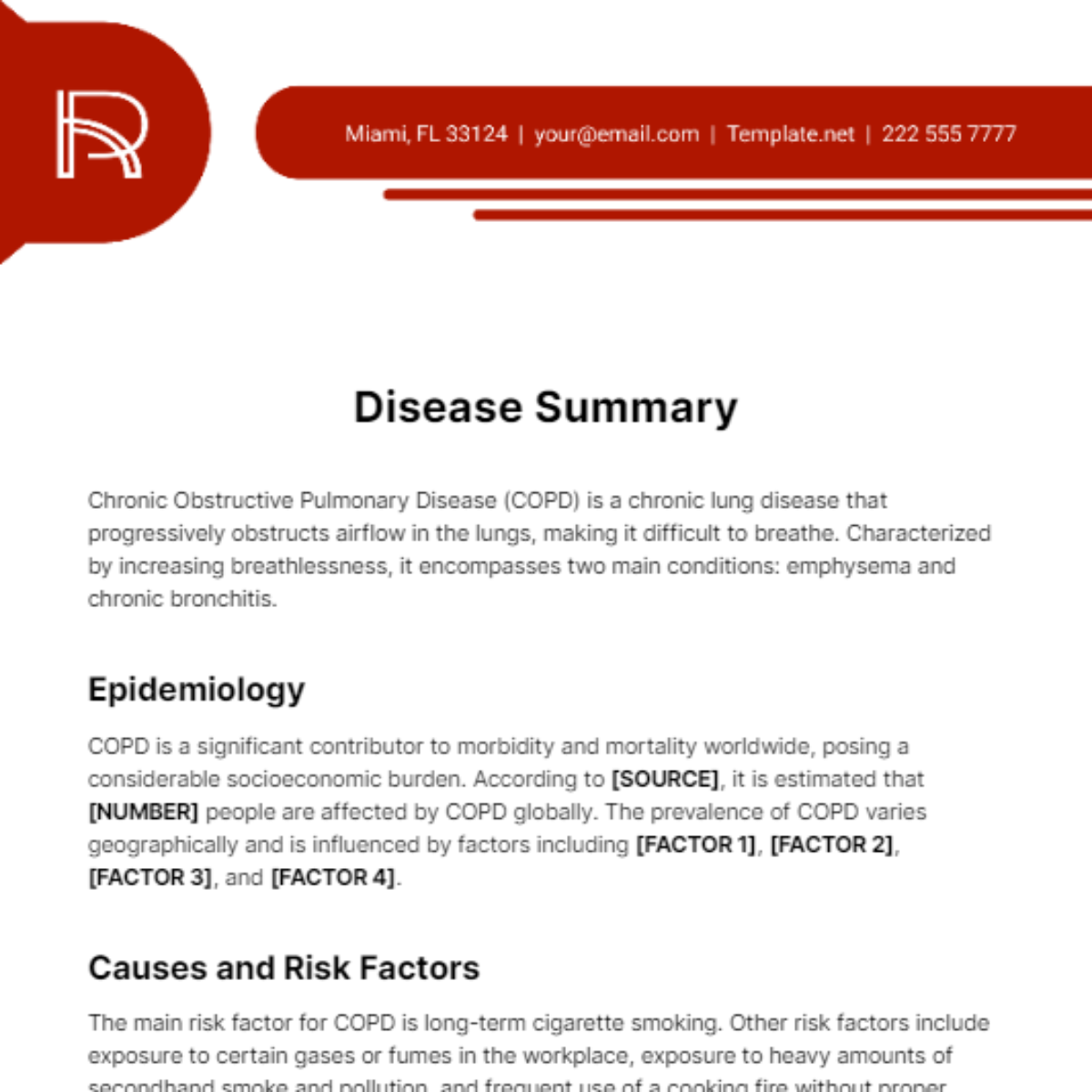
Chronic Obstructive Pulmonary Disease (COPD) is a chronic lung disease that progressively obstructs airflow in the lungs, making it difficult to breathe. Characterized by increasing breathlessness, it encompasses two main conditions: emphysema and chronic bronchitis.
Epidemiology
COPD is a significant contributor to morbidity and mortality worldwide, posing a considerable socioeconomic burden. According to [SOURCE], it is estimated that [NUMBER] people are affected by COPD globally. The prevalence of COPD varies geographically and is influenced by factors including [FACTOR 1], [FACTOR 2], [FACTOR 3], and [FACTOR 4].
Causes and Risk Factors
The main risk factor for COPD is long-term cigarette smoking. Other risk factors include exposure to certain gases or fumes in the workplace, exposure to heavy amounts of secondhand smoke and pollution, and frequent use of a cooking fire without proper ventilation.
Clinical Manifestations
COPD patients commonly experience symptoms such as constant coughing (often referred to as "smoker's cough"), shortness of breath, increased breathlessness, fatigue, and frequent chest infections. Severe COPD can lead to weight loss, reduced muscle strength, and even heart failure.
Diagnostic Criteria
Diagnostic Test: [DIAGNOSTIC TEST]
Specific Measurement: [MEASUREMENT]
Specific Circumstances: [CIRCUMSTANCES]
Related Medical Procedure: [MEDICAL PROCEDURE]
Treatment Modalities
Treatments for COPD include smoking cessation, medications (bronchodilators, corticosteroids), lung therapies (oxygen therapy, pulmonary rehabilitation program) and surgery (lung volume reduction surgery, lung transplant).
Treatment | Description |
|---|---|
Smoking cessation | The single most important intervention that can influence the progression of COPD |
Bronchodilators | Help relax the muscles around the airways |
Lung therapy | Oxygen therapy assists in reducing the effort required for breathing |
Surgery | May benefit individuals with severe symptoms and a degenerative response to medical therapy |
Conclusion
Chronic Obstructive Pulmonary Disease (COPD) is a prevalent and debilitating lung condition characterized by airflow limitation and respiratory symptoms. Early recognition, comprehensive evaluation, and multimodal management are crucial in reducing the burden of COPD and improving patients' outcomes. Healthcare providers play a pivotal role in the prevention, diagnosis, and management of COPD, emphasizing the importance of integrated care and patient education in optimizing treatment outcomes and enhancing quality of life.
Summarized By: soundarya
- 100% Customizable, free editor
- Access 1 Million+ Templates, photo’s & graphics
- Download or share as a template
- Click and replace photos, graphics, text, backgrounds
- Resize, crop, AI write & more
- Access advanced editor
Introducing the Disease Summary Template from Template.net. Crafted for medical professionals, this editable and customizable template streamlines disease documentation. Effortlessly create detailed summaries with ease, thanks to its intuitive design. Editable in our AI Editor Tool, it ensures seamless customization for precise reporting. Simplify medical record-keeping effortlessly.
